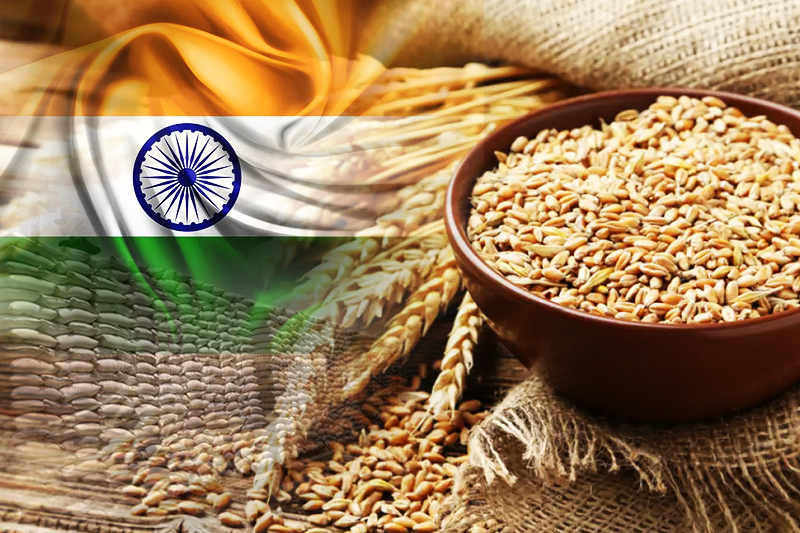India's wheat stocks hit 3-year high, but conflict with Pakistan could reduce government purchases

According to the Food Corporation of India (FCI), as of April 1, the country’s wheat stockpile stood at 11.8 million tonnes, well above the target of 7.46 million tonnes and 57% or 4 million tonnes higher than last year’s level. Rice stocks reached a record high of 63.09 million tonnes, well above the target of 13.6 million tonnes.
Dealers believe that even if government purchases of wheat are reduced, stocks will be sufficient to sell on the open market and stabilize domestic prices. And large rice stocks will allow India, which accounts for 40% of global rice supplies, to significantly increase its exports.
This week, relations between India and Pakistan have soured after Pakistan-backed militants killed 26 tourists in the disputed region of Kashmir. In response, India closed a border crossing, suspended trade, restricted visas, cancelled visas already issued, expelled military attaches and gave Pakistanis 48 hours to leave the country. It also announced its withdrawal from the 1960 Indus Waters Treaty and cut off water supplies to Pakistan.
The sources of five of the six rivers of the Indus system are located in India, but the water is mainly abstracted by Pakistan, whose agriculture and energy depend on a stable water supply. In 1960, the countries signed a treaty according to which India began to use the waters of the three eastern rivers of the Indus system up to the border with Pakistan, which received the right to use the three western rivers.
In none of the conflicts with Pakistan has India violated the treaty, and now for the first time has it suspended its operation, although it does not provide for the right of either party to unilaterally suspend or terminate the agreement.
Pakistan has threatened India with war if the water supply is not restored, and military clashes with gunfire have already begun in the Kashmir region.
India will not be able to cut off Pakistan’s water supply for long, as it has no capacity to divert and store it. But it can stop providing information on dam releases and floods, and renege on its commitment to provide minimum water levels during the dry season.
Unstable water supply will negatively affect Pakistan’s agriculture, especially crops that depend on irrigation, including rice, wheat and sugarcane. Currently, the waters of the Indus allow Pakistan to irrigate 12 million hectares of land. Meanwhile, India has long argued that the division of water in the rivers belonging to it and Pakistan is not 50% to 50%, as stipulated in the treaty, but 20% to 80%.
For almost 30 years of expertise in the agri markets, UkrAgroConsult has accumulated an extensive database, which became the basis of the platform AgriSupp.
It is a multi-functional online platform with market intelligence for grains and oilseeds that enables to get access to daily operational information on the Black Sea & Danube markets, analytical reports, historical data.
You are welcome to get a 7-day free demo access!!!
Read also
Modi did not clarify whether India had abandoned purchases of Russian crude oil in...
Demand in the corn market continued to support prices in Ukraine
Turkish Ports Added to UkrAgroConsult LineUp Reports
Duties on Canadian agricultural products allowed Russia to capture China’s pea market
Uncertainties As The New Reality: How Agri Business Can Generate Money In 2026
Write to us
Our manager will contact you soon



